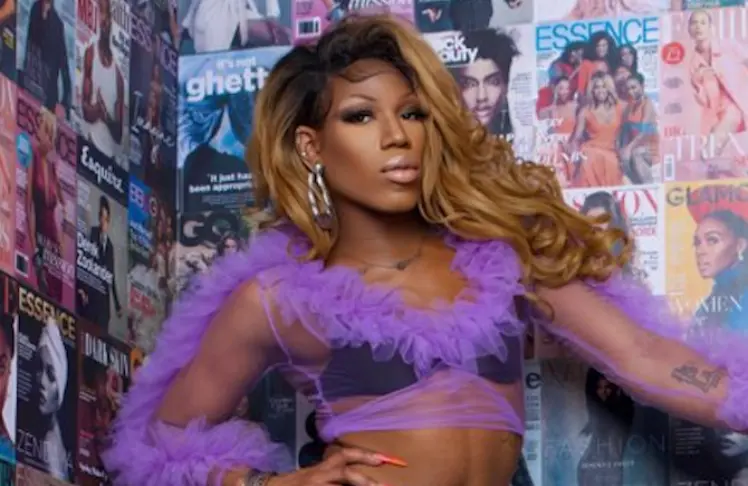
From Bayard Rustin organizing the first Freedom Ride in 1947 to Marsha P. Johnson being a courageous force behind the Stonewall Rebellion in 1969, Black history and LGBTQ+ history are deeply intertwined. But as we‘ve been celebrating the legacy of Black life and culture this month, many of our queer community members continue to be under attack by legislation aimed at stripping away their rights.
Less than three months into 2024, 496 anti-trans bills have already been introduced in 41 states across the country. The draft legislation ranges from bills that seek to block transgender people from receiving basic healthcare to enforcing education restrictions, and erasing legal recognition. The legislative climate is making it particularly hard for Black trans people to exist.
“There has been increased and more direct displays of transphobic discrimination targeted at people that I know within the community,” Joelle Bayaa-Uzuri Espeut, Black trans activist and director of programming at The Normal Anomaly — an organization centering Black, queer plus persons to overcome barriers and end stigma — tells Word In Black.
The largest survey of transgender people in the United States, released earlier this year by the National Center for Transgender Equality, found that 40% of respondents said they considered moving because they experienced discrimination or unequal treatment where they were living, and 10% said they had already moved because of discrimination. (A number that has likely risen since 2022, when the survey was conducted.) While many transgender people are choosing to flee hostile states in what has become known as the “trans exodus,” Bayaa-Uzuri Espeut says lower-income Black and brown trans folks do not always have that option.
“The trans exodus is a direct response to the anti-trans bills being proposed and passed, as well as the increased violence towards the trans community. Trans-identifying persons are feeling less and less safe. The real harm is being done to Black and brown trans people who do not have the financial means or resources to move,” she says.
A standout among the recent harmful legislation is the so-called Women’s Bill of Rights. Disguised in language suggesting that it is meant to provide protections for cisgender women and girls under federal law, Bayaa-Uzuri Espeut says the legislation is a clear assault against trans people. The legislation would create legal definitions for “man” and “woman” based on their reproductive system and fails to speak to reproductive justice, equity, or body autonomy. Far more than restricting how trans folks can self-identify under the law, the legislation also aims to restrict the use of single-sex facilities such as locker rooms, rape crisis centers, prisons, domestic violence shelters, and restrooms for trans people and stop trans people from changing their gender markers on IDs. On February 14, the bill was passed in West Virginia, and is being considered in Iowa, Georgia, and several other states across the country.
“It clearly targets transgender persons, trying to erase and erode gender-inclusive and expansive language,” Bayaa-Uzuri Espeut says.
In the face of this, affirming Black, trans-led spaces are more important than ever. That’s why, despite setbacks, Bayaa-Uzuri Espeut remains dedicated to the work she does to protect trans folks through The Normal Anomaly. Through its facilities in Houston, Texas, the organization provides health resources, including HIV testing and sex education, employment opportunities, allyship training, and more.
“The community-focused and centered work of the organization is something that I am passionate about and something that I’ve been doing for the last six years,” Bayaa-Uzuri Espeut says. “I have always found a desire to help co-create braver, courageous spaces for [the] community that do not center and uplift trauma and pain, which I feel is crucial in a time where there is so much anti-trans rhetoric, harm, and violence being inflicted on the trans community.”
Though Black trans activists are doing amazing work to protect and uplift the Black trans community, they cannot create sustained progress alone. Instead of seeing Black trans issues as problems that only affect trans people, Bayaa-Uzuri Espeut reminds us that inequality impacts us all and must be dismantled through courageous unity.
“Rights centering healthcare, reproductive justice, safety, and equity are issues that affect everyone, with trans people — especially Black trans women — being impacted exponentially at higher levels,” she says. “Uplifting and protecting trans rights doesn’t just impact trans people, it impacts everyone.”















